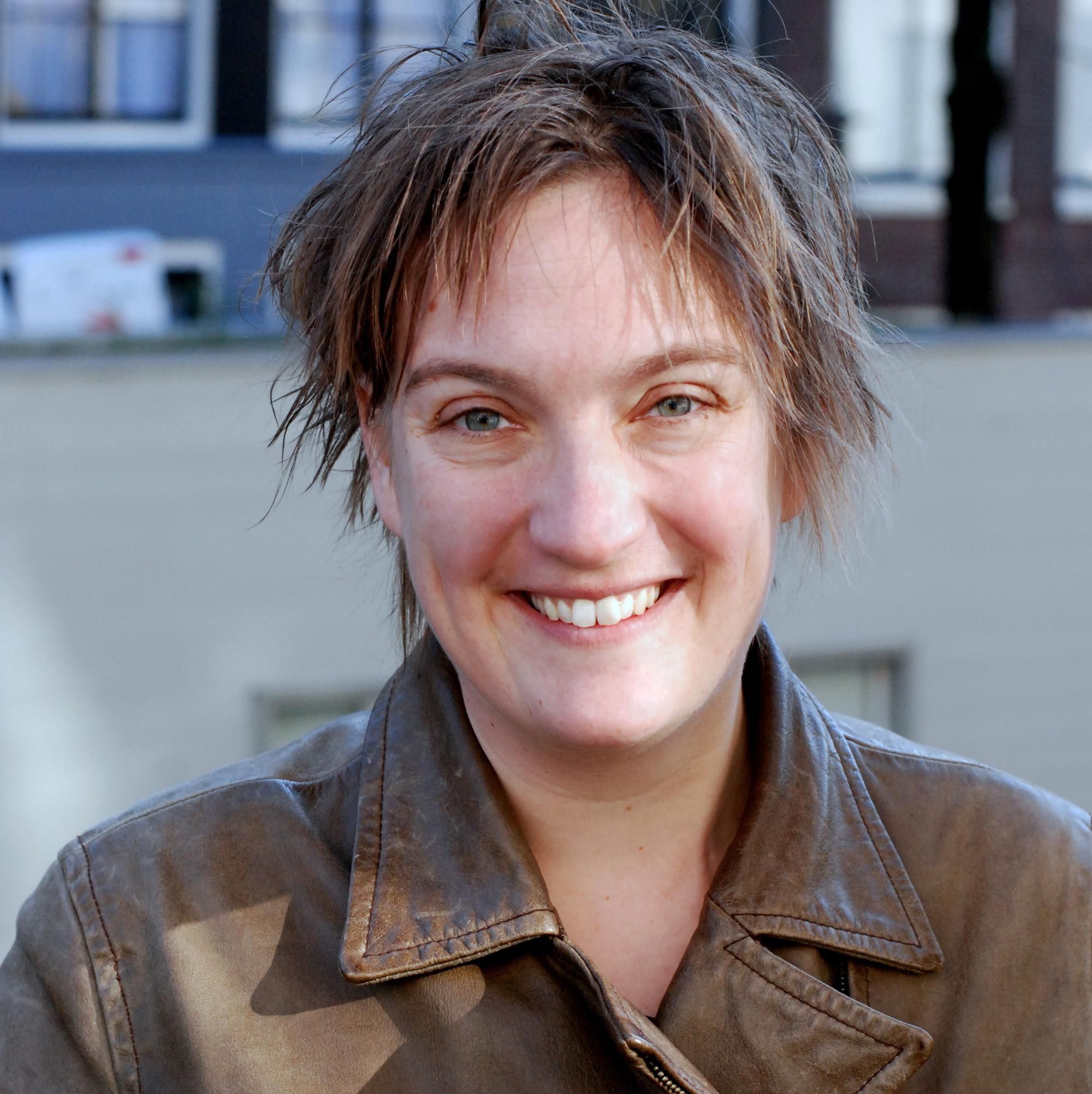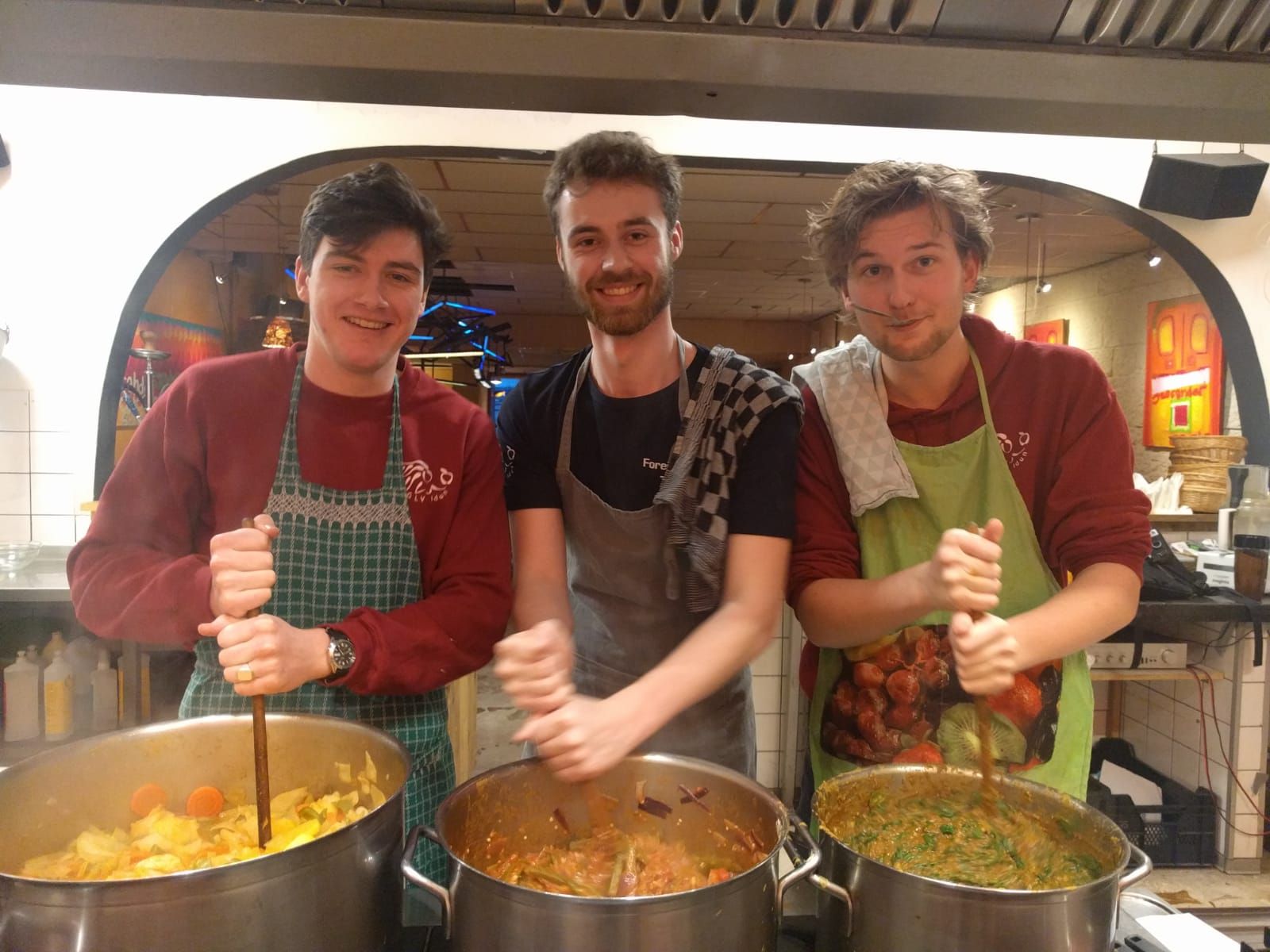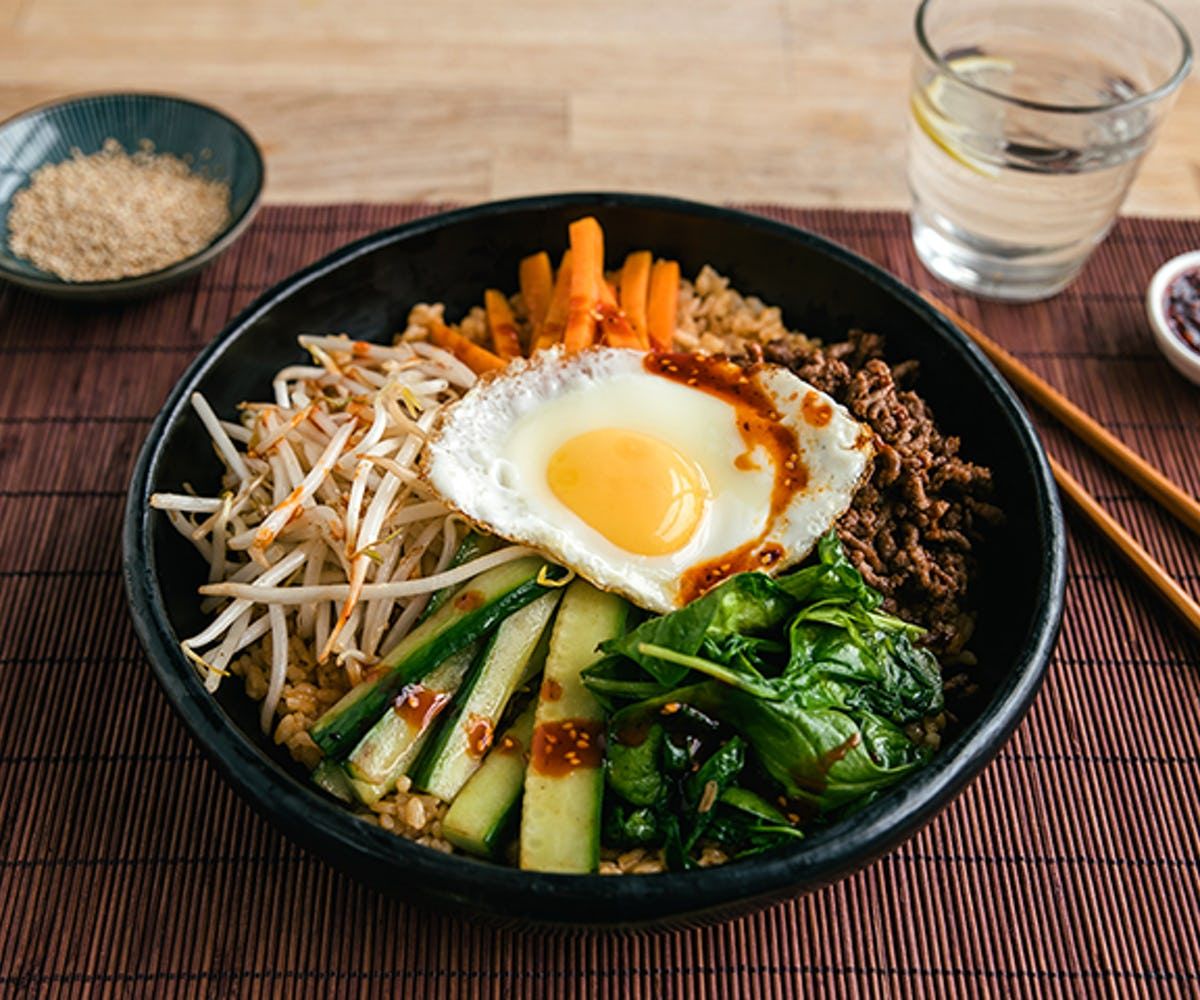Behind the microphone and in front of the class
- Laura Nederveen
- Articles
- 4 minutes (895 words)
Interview with Lemke Kraan
What to do after your PhD? Earlier I had started a promotion because I enjoyed research and wanted to delve deeper into the subject. Maybe I could become a professor! Now, five years later, I am not so sure anymore. I have noticed that I actually like the research presentations much more than coming up with or conducting the research itself. So I decided to explore other areas. Maybe science communication?
During an interview workshop of communication platform MindMint (see mind-mint.org) I sat next to Lemke Kraan, a teacher of the science communication course for PhD students I took last year. Super exciting, because I am very curious about what she does, about her experience with science communication, and how she ended up in that field. During an exercise, I had the opportunity to ask her some questions.
Hi Lemke, I know you from a science communication course you teached, but what kind of work do you actually do?
“I work as a freelance journalist, mainly for Dutch public broadcasting. In addition, I teach writing skills and science journalism for the Masters Science Education and Communication, about three days a week.”
How did you end up in this field?
“I studied biology in Groningen and followed some Science Communication courses. The content was similar to the master I am currently teaching. Afterwards, I did an internship at the VPRO science website and radio. From there, I moved on to a job at Teleac radio. In order to upgrade to a professional level, after one year I went back to do a Masters in Journalism in Amsterdam. Then I started working as a freelancer for various broadcasters. Since then, I have had various jobs: from research for television programs, writing articles, and editorial work for radio programs, to radio reports and making radio documentaries.”
And now you work at the RUG?
“Yes, four years ago, I started as a freelance teacher. The amount of hours kept growing, and by now it has become half a job. It’s a good combination with my freelance work as a journalist. It means I can be critical in choosing which assignments I accept as a journalist.”
How did the RUG come to you when they were looking for a substitute? You were out of the picture for a while.
“Well, very coincidentally. I spoke to a friend at a party who started teaching at the University of Groningen within the Masters of Science Communication. "I would love to do that too," I said. Soon afterwards, there was a vacancy at the RUG, and this friend recommended me.”
And what is more fun? Teaching or your freelance work?
“Both are fun, it's the combination that makes it nice. Teaching would be impossible without the journalistic work; I have to be able to tell about the profession from the practical side. I can pass on all my experience to the students. On the other hand, the combination of freelance journalism work with teaching is very nice because in that way I don’t have to worry about my income .”
What are you mainly concerned with now?
“At the moment, I work a lot for the radio. I make short radio documentaries for background programs, not only about science, by the way.”
How does creating radio programs work?
“First you need to think of a topic, which is then proposed to the editors. With their consent you can start working on the documentary and you deliver a finished product. For television, the process is different; then an editor or a researcher will sorts things out. The story is made in cooperation with a director. After that a whole team will make the recordings. If you make a documentary for the radio instead, the whole process is your responsibility from start to finish.”
Is making radio, therefore, more fun?
“You have more freedom, yes. But it's just different. It is also very nice to work with people on the same program, for example, television documentaries. I worked on the VPRO's Labyrint, a science program. That was really a nice place to work, as a team we made a great program together. Maybe I should make some more TV again!”
And what do you like best about your work?
“I am curious, I like to discover how things work and explain it to others. In a PhD program, you have to focus on one topic for a long time and I am happy to work on multiple topics at the same time. Journalistic work and teaching is a great way for me to be involved with science. ”
Can I also do something like that, with my research background, or do you need a communication course?
“Yes, you can, definitely! A course will set you up for the right direction: by means of everything you learn, the experience you gain and the internships you do. But a journalism degree or a master's degree in science communication is not strictly necessary to be able to work as a journalist or science communicator. It is not a protected title. You can also learn the profession on the job, or by doing an internship or taking courses. There are many ways.”
Laura Nederveen
PhD student in the department of Cell Biochemistry and alumna of GLV Idun (2007-2013)

Lemke Kraan


Comments
Log in to read and post comments